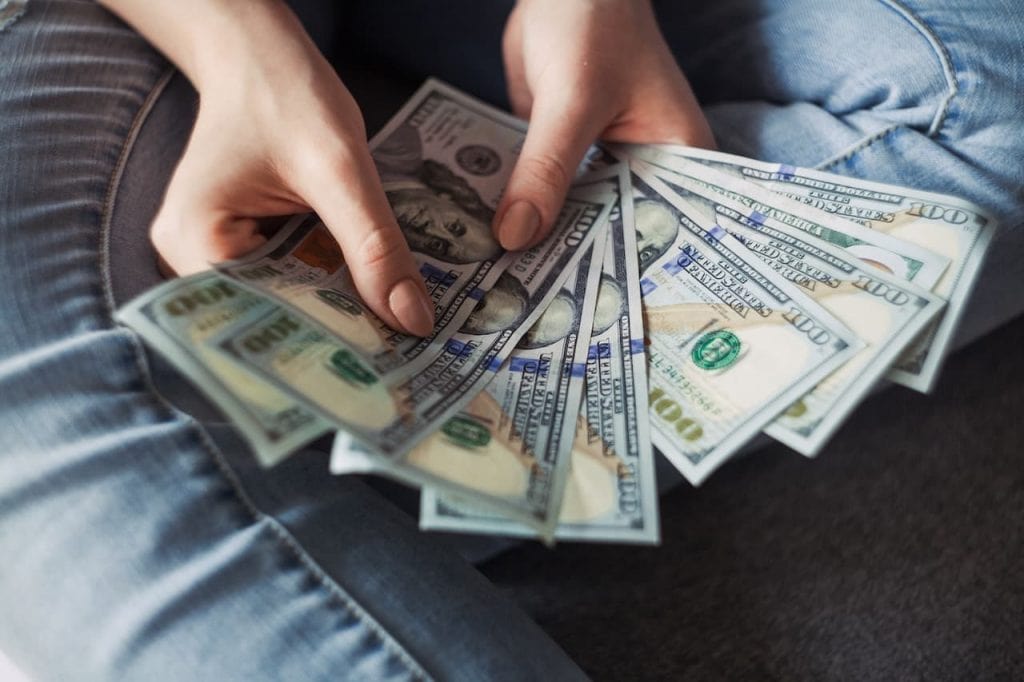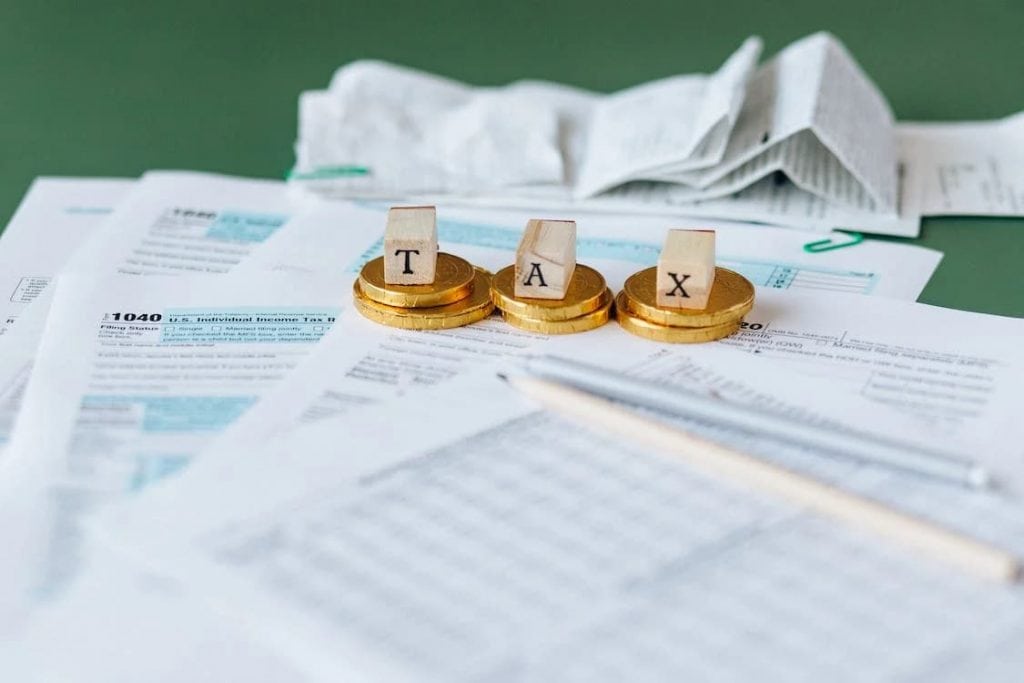Though selling your home might just be the biggest payday of your life, whether you’re in California or Ohio, you’ll probably only keep about 60% to 70% of the sale price of your home. Home sellers have to pay out a decent amount of money to get their houses sold, just as they had to pay out money to buy it in the first place. We’re going to go over that 40%-30% the seller doesn’t keep after selling a property to give you an idea of where that money is going and why it isn’t going to you.
Where Does the Money Go?
Paying Off Your Existing Mortgage
Unless you’ve paid off your mortgage early or gone the full thirty years of the loan term, you probably still owe interest and principal to the lender that you can pay off with the sale of your home. The deeper you are into paying off your mortgage, the less money you’ll lose during the home sale to pay back your old lender. This will probably be the greatest chunk of money you don’t keep after selling a property.
The Agents’ Commissions
Typically, the seller ‘pays’ both their agent and the buyer’s agent. In reality, both realtors take a percentage from the sale price of the house, which can range from 4% to 7% and is usually about 6%. The realtors then split that percentage according to how they see fit. What matters to the seller is that they take 6%.
Closing Costs
You might remember paying closing costs from when you were the homebuyer. While the seller pays less closing costs than the buyer, they still add up to a considerable amount of money that they don’t keep after selling a property. These closing costs consist of a variety of fees and taxes which we’ll explain below.
Capital Gains Tax
The Capital Gains Tax is applied to sellers based on their income, with rates of 0%, 15%, and 25%. However, you can avoid paying a capital gains tax if you have lived in your home for at least two years out of five years before selling the home, then up to $250K of the profits you make from selling the home won’t be taxed. And if you’re married and file a joint return, that number gets pushed up to $500K. We recommend you work with a real estate attorney to figure out how much you’ll pay in taxes upon selling a home, which leads us to our next expense.
Real Estate Transfer Tax
These taxes go by many names in many places. The idea of them is when a property is transferred from seller to buyer, somebody has to pay for it. In some states, the buyer pays; in others the seller pays. Generally transfer taxes in higher-priced areas like Philadelphia Real Estate are higher than in other parts of the country. Typically the tax is between 1% and 3% of the sale price. Since most states have transfer taxes of some kind, it’s easier to list here the ones that do not.
| Alaska | Kansas | Montana | Oregon (except Washington County) |
| Arizona | Louisiana (except New Orleans) | Nebraska | Texas |
| Idaho | Mississippi | New Mexico | Utah |
| Indiana | Missouri | North Dakota | Wyoming |
Attorney Fees
Not every state requires the seller to have an attorney when selling their home, but almost half currently do, including every state in the Northeast. Who pays for the attorney and whether both buyer and seller have an attorney varies from state to state. Real Estate Attorneys charge by the hour, anywhere from $150 to well over $500. The current states that require home sellers to have an attorney are:
|
Alabama |
Indiana | Maryland | New Jersey | Rhode Island | Washington |
|
Connecticut |
Kansas | Massachusetts |
New York |
South Carolina |
West Virginia |
|
Delaware |
Kentucky | Mississippi | North Dakota |
Vermont |
|
|
Georgia |
Maine | New Hampshire | Pennsylvania |
Virginia |
Title Fees
Several fees are associated with giving the title of your home to the buyer. The first among them is the title search fee, where the title company makes sure you legally own the title to your home and that your ownership thereof can’t be disputed. This usually runs you about $300 to $400.
After paying for the title search fee, the seller might have to pay for the owner’s title insurance. We say ‘might’ because it varies from state to state who winds up paying for owner’s title insurance, in some cases it’s the buyer. Both law and custom decide who pays, and both law and custom vary from state to state and even between areas within the state. Title insurance typically costs about .5% to 1% of the sale price and is a one-time payment.
Pre Listing Inspection
Getting your home inspected before being listed is optional for sellers and only recommended when you’re worried about the house being able to sell or if you’re in a stiff buyer’s market. Getting a pre-listing inspection can also help you know how to price a home for sale. Typically an inspection will cost between $250 and $700.
Seller Concessions
Seller’s concessions can dip into the money you make after selling a property, but you probably won’t have to worry about them unless you’re in a buyer’s market. The seller’s concessions include costs such as paying for repairs as requested by the buyer and taking on some of the buyer’s closing costs such as attorney fees, appraisal fees, etc. So long as you’re in a seller’s market and have leverage over the buyer, you won’t have to worry about the seller’s concessions.
Moving Expenses
Paying a moving company, renting a U-Haul, or paying back friends for helping you carry your sofas and beds out of your house all cost money. Typically moving expenses cost about $1,200 but can vary widely.
Prepping Your House For Listing
To make your home marketable, you’ll probably want to spend some time and money making it look as nice as possible. This may include putting a fresh new coat of paint on the front door, repainting the purple walls of your daughter’s bedroom to a more neutral color, and fixing everything obviously broken in the entryway. Don’t go overboard with home repairs, as most buyer’s will decide on a house not long after they step through the door.
Storage
This goes along with prepping your home for listing. You want to show off how much space your home has, and you can’t do that if it’s cluttered with your stuff. Unless you can cram most of your things into the garage or basement, you’ll need to rent a storage unit of some kind, which can cost about $150 to $500 on average.
Remaining Bills
Finally, you’ll need to pay the remaining utility bills on your house as well as any HOA fees.
Do You Keep All the Money After Selling A Property?
As you can see, you’ll have to give up a good chunk of your profit in order to get that profit in the first place. On the bright side, you will almost certainly have significantly more liquid wealth in hand than you did when you first bought your home. You can use that wealth to make a downpayment on a new home, start the whole process over again, or invest it elsewhere. If you haven’t already, get in touch with a real estate agent today and get looking for your new home.










